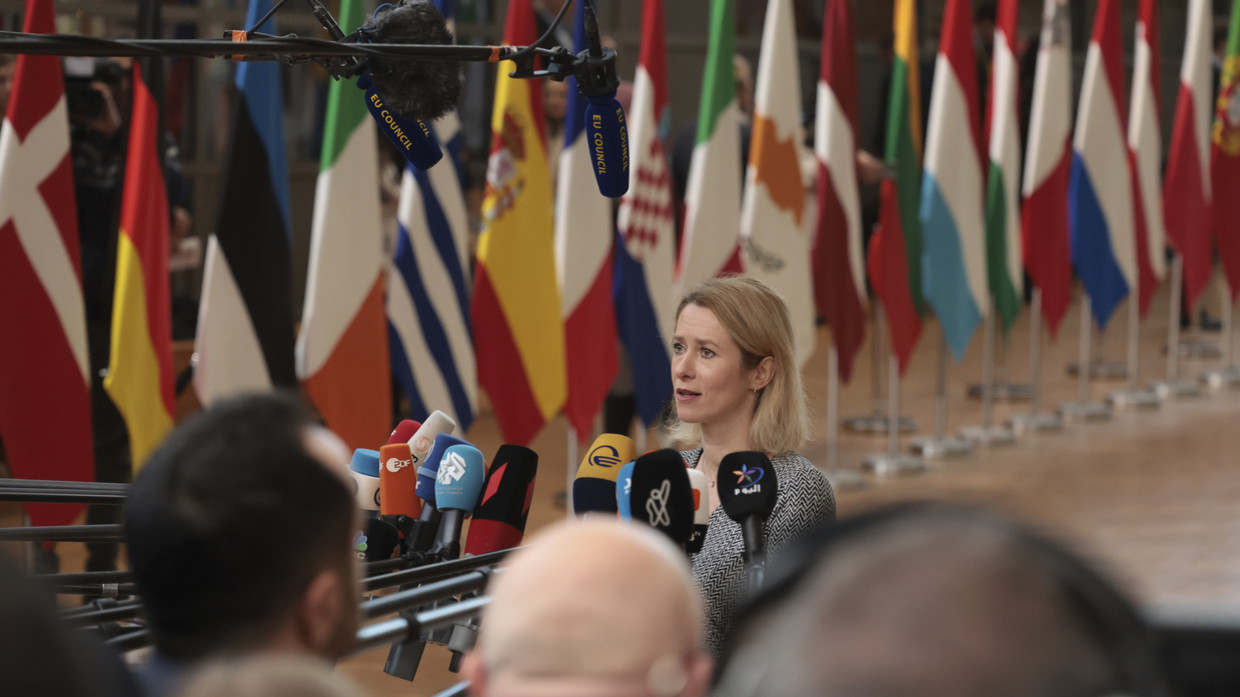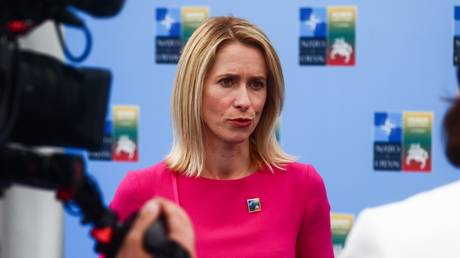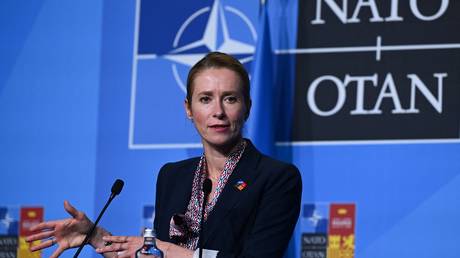Estonian Prime Minister Kaja Kallas, an outspoken critic of Russia, is rumored to be on the “dream team” of women some EU diplomats would like to see leading the bloc after the European Parliament elections in June, Politico EU reported on Thursday, citing sources.
The combination would see Kallas take over as High Representative of the Union for Foreign Affairs and Security Policy, the post currently held by Spain’s Josep Borrell while Danish Prime Minister Mette Frederiksen would become the new chair of the European Council. Ursula von der Leyen of Germany would remain head of the European Commission and Roberta Metsola of Malta would keep his role as chair of the European Parliament.
“It’s my dream team,” a diplomat who requested anonymity in order to speak freely told Politico. “It would send such a strong message.”
According to outlet, Kallas is a name “increasingly mentioned in corridor chats and over coffee,” given the Ukraine conflict. She has already put her name in the hat to succeed Jens Stoltenberg as the secretary-general of NATO.
The Estonian leader is an outspoken critic of Russia and supporter of Ukraine. Facing calls to resign last August, after Estonian media revealed that her husband Arvo Hallik held a stake in a shipping company operating in Russia despite EU sanctions, Kallas refused and vowed to stay in power “for the freedom of Ukraine and for Estonia.”
With former European Council President Donald Tusk now the prime minister of Poland, it is “simply impossible to avoid” giving Eastern Europe the foreign policy portfolio given the Ukraine conflict, one EU diplomat said.
The rumored “dream team” would give one leadership post each to the bloc’s east, west, north and south. The scheme would also “make sense” due to the political alignment within the EU, leaving the European People’s Party (EPP) in charge of the Commission and the Parliament, while the socialists run the Council and the “liberals” control the External Action Service.
With Christine Lagarde of France as president of the European Central Bank until 2027 and Nadia Calviño of Spain in charge of the European Investment Bank, the EU’s most powerful positions would all be held by women, who are considered “underrepresented” in the bloc.
No woman has ever chaired the European Council. Von der Leyen is the first at the head of the Commission. There have been three female chairs of the European Parliament since 1979 and two foreign policy heads – Catherine Ashton of the UK and Federica Mogherini of Italy – since the post was created in 1999.



